All images courtesy of Greg Fraser
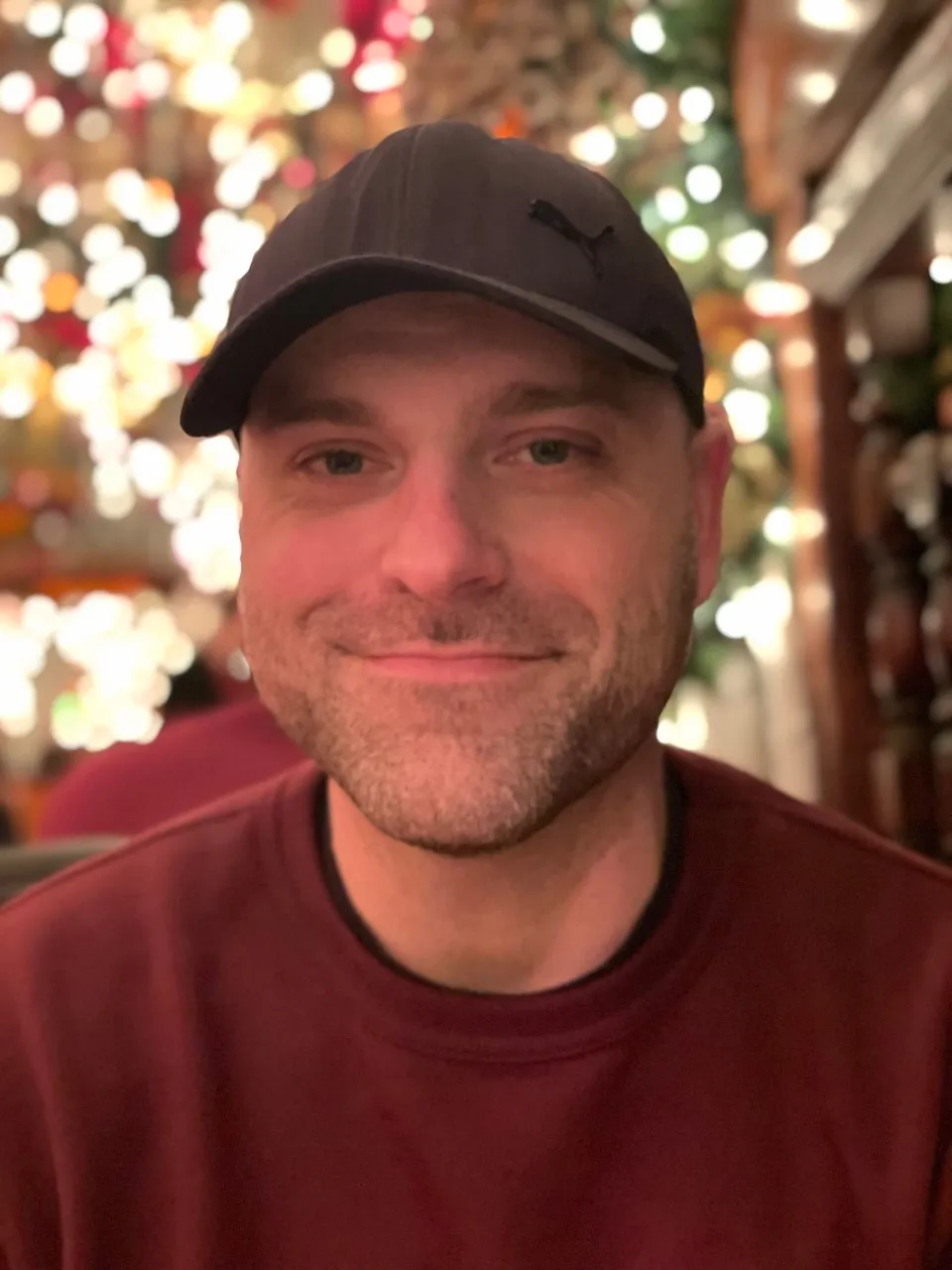
By Andrew Daly
andrew@vinywriter.com
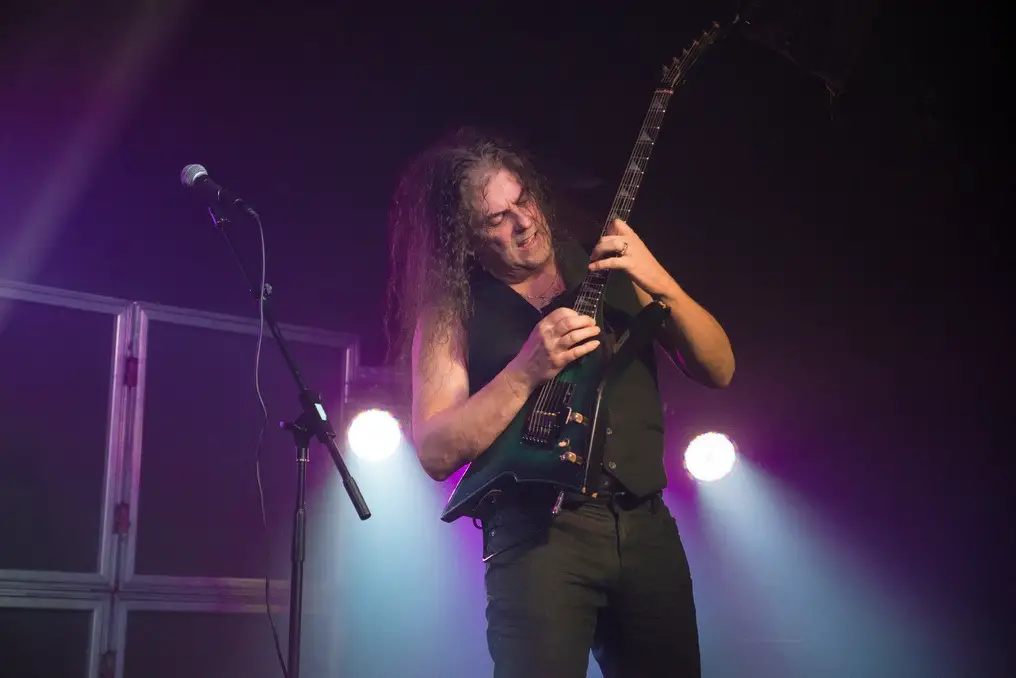
Recently, I caught up with veteran six-stringer Greg Fraser of Brighton Rock. Among other things, we touch on Greg’s origins in music, the formation, and evolution of Brighton Rock, the recording of the band’s debut, the 1980s scene, joining Helix, Greg’s record work with Storm Force, and a whole lot more.
If you would like to learn more about Greg Fraser and his latest band Storm Force, the link to their Facebook page is here. Once you’ve done that, check out this interview with Greg. Cheers.
Andrew:
Greg, I appreciate you taking the time today. How have you been holding up over the last year or so? What have you been up to?
Greg:
I’ve been holding up ok all things considered. I’ve been mostly spending my time writing new music for my new band Storm Force’s second record. I also like keeping tabs on my two sports teams the Chicago Blackhawks, and the Green Bay Packers.
Andrew:
Before we dive into your professional career, let’s go back a bit. What first got you hooked on music?
Greg:
My father had his own TV/radio show when I was a kid, so, my earliest memories are of him playing music on the radio show. I remember around 1970, when I was around seven years old, The Partridge Family show came out, and I was hooked. Within three years, I was playing guitar trying to learn Keith Partridge songs, as well as songs from my collection of K-Tel records. I still have those records!
Andrew:
As a guitarist, who were some of your early influences?
Greg:
Jimmy Page was the biggest early influence, and then, probably Ritchie Blackmore, then a little later, Michael Schenker became a huge influence.
Andrew:
Let’s talk about recent events. Take me through the formation of Storm Force.
Greg:
Storm Force began as a vehicle to make some of these never-ending songs that I write, and accumulate come to life. I wanted to hear a full band playing on them instead of just me, so, I reached out to some local friends who hopped on board, and brought these songs to a whole new level. What started out as a fun project, soon became a full-fledged band, and I thought, “Why not make a full record, and release it to the world, and see what happens?” The response has been overwhelmingly positive, and very gratifying, to say the least.
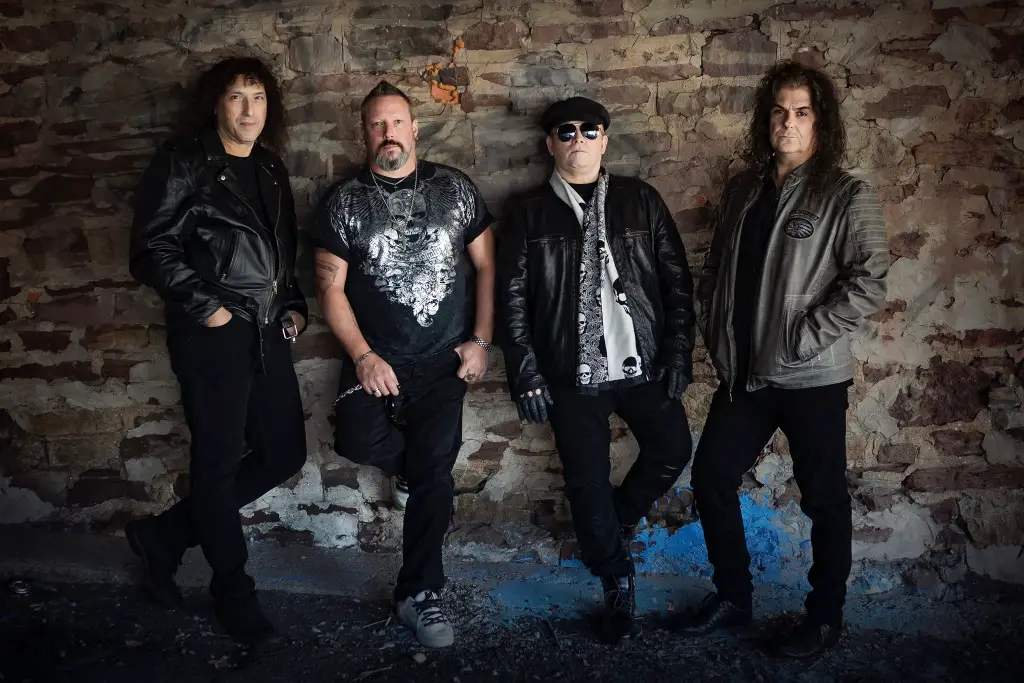
Andrew:
Storm Force’s 2020 record, Age Of Fear, is a fantastic album. I found it to be one of the best Rock/Metal records of the year. Let’s dig into the writing and recording of the album. What was it like putting an album of this caliber together during COVID?
Greg:
Thank you for the kind words. We are very proud of the record. Well, luckily the record was recorded and finished right before COVID started, but unluckily, released just as COVID started, which prevented us from playing any live shows to promote it. The record was released in February 2020, and COVID hit one month later. The making of the record was great because there was no pressure being that no one was aware we were making one, and no one was hounding us to get it finished in a hurry. We took our time to get it right before we started letting record companies, and such hear anything, which took off any stress.
Andrew:
Let’s go back now, and talk about Brighton Rock, which I feel is one of the more underrated groups of the 80s Rock era. Take me through the early years, and the formation of the band.
Greg:
Thank you once again for the kind words. I founded the band around 1983 with my friend Stevie Skreebs. We had some different drummers, singers, and keyboardists before we finally settled on the guys which would be the Brighton Rock that everyone knew. Right from the start, we concentrated on being an original band, instead of a cover band, with the intention of getting a record deal. We were recording, and sending out demos before we ever even played live. We very early on started getting positive attention from WEA Records, who eventually signed the band. We hit the road, and for the next eight years, we lived our dreams of being recording artists and touring the world.
Andrew:
After signing with WEA, Brighton Rock released its classic debut, Young, Wild and Free. If you can, take me through the recording of your debut record.
Greg:
The record was recorded in 1985, in Toronto, at Phase One Studios, with legendary producer, Michael Wagner. Legendary producer, Jack Richardson, also helped out a lot with pre-production, which was very essential. The process was effortless because we were so well prepared going in, and Michael was so much fun to be around that it was a pleasure making that record. It was very exciting watching, and hearing everything being recorded at such a state-of-the-art studio that the time just seemed to fly by. We had a lot of laughs making that record for sure!
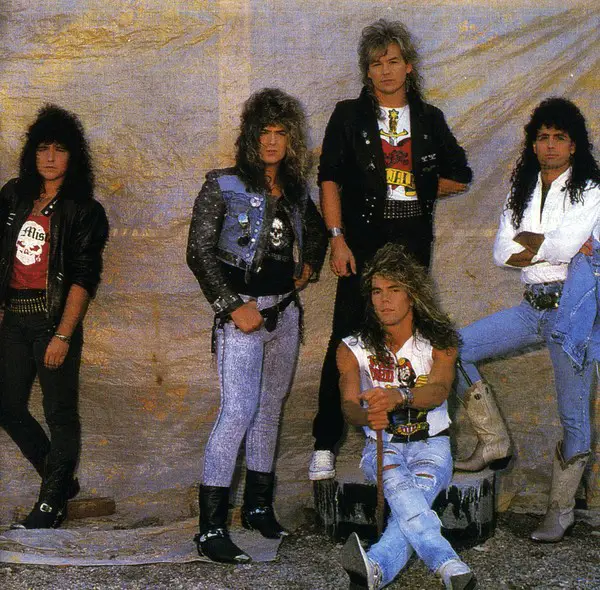
Andrew:
Brighton Rock’s second record, Take A Deep Breath, is probably the band’s most commercially successful, but also leaned a bit more on keyboards, which was typical of the time. Looking back, what are your thoughts on the band’s sophomore record?
Greg:
Another effortless record to make. Jack Richardson took over as producer, and once again, the process was pretty smooth, especially because of the pre-production we did with Jack prior before entering the studio. Jack was a huge part of making that record fun, and stress-free. He could have been a stand-up comedian if he wanted. We knew were in very capable hands with Jack, and the results speak for themselves. It was our biggest selling record worldwide, giving us opportunities to tour the UK for the first time, which was a blast, and a dream come true. I’m very proud of that record.
Andrew:
In 1991, Brighton Rock released what turned out to be the band’s final album, Love Machine, which took on a much harder edge. At this time, there was a bit of a sonic shift washing over the Rock scene. Did that have an impact on the choice to forgo keyboards and the like?
Greg:
We definitely did not want to repeat ourselves on that record, and keyboards were becoming too polished sounding for what was being released at the time. A lot of tougher sounds were becoming more popular with the likes of Guns ‘N Roses, and Skid Row and keyboards were considered uncool, and wimpy. Most of the new songs I was writing did not lend themselves to keyboards anyways.
Andrew:
In 1992, after the supporting tour for Love Machine, Brighton Rock disbanded. What led to the decision to end the band? I always felt the band was criminally underrated, but the scene was so deep around that time, and so many great bands got lost. Looking back, do you feel Brighton Rock received its due?
Greg:
After the Love Machine tour, we were pretty burned out from the years of touring, and we felt at the time that we were at a crossroads. It felt like we were treading water. We fired our manager, and could not find anyone that could help us break the USA to get us to the next level. Our singer, Gerry, decided he wanted to move to L.A. to take another shot on his own, which pretty much cemented the end of the band. It was tough to swallow at the time, but looking back, it was the perfect time to end it. We left on our own terms, with our heads held high, very proud of what we had achieved.
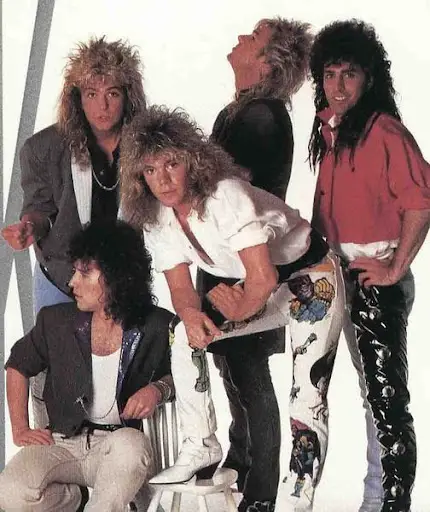
Andrew:
After Brighton Rock disbanded, you joined the classic outfit Helix. Take me through how that went down.
Greg:
I was playing in a weekend party/cover band called Scurvy Dogz with the bassist from Helix, Daryl Gray. Helix’s guitarist, Paul Hackman, had recently passed away from a tragic van accident while on tour. Brighton Rock had done many shows with the Helix boys over the years, and when they decided to keep the band going after Paul’s death, they asked if I would be interested in possibly joining, and I said, “Yes.” I think that was around 1992.
Andrew:
Helix is such a great band, with a wonderful history. You were a member of the band for four years, and you made one really fantastic record in 1993’s It’s A Business Doing Pleasure. What was it like recording with Helix?
Greg:
Although I’m credited with playing on that record, in actual fact, the record was completed before I even joined the band. That record was supposed to be a solo record for Brian [Vollmer], the singer. None of the Helix members played on that record. Brian had a tough time getting a record deal with it, but Aquarius Records decided to pick it up only if it had the Helix name on it, because they felt it had more name recognition than trying to break Brian as a new solo artist. I think that record is really good with some very strong songs on it. It’s one of my favorite Helix records. It’s a shame it never got the recognition it deserved.
Andrew:
Ultimately, why did you end up leaving Helix?
Greg:
By 1995, Grunge had really started taking over, and the gigs and tours were getting fewer, and fewer. Everything was starting to look very bleak, and I decided that I had enough of touring, and wanted to finally get off the road for a while.
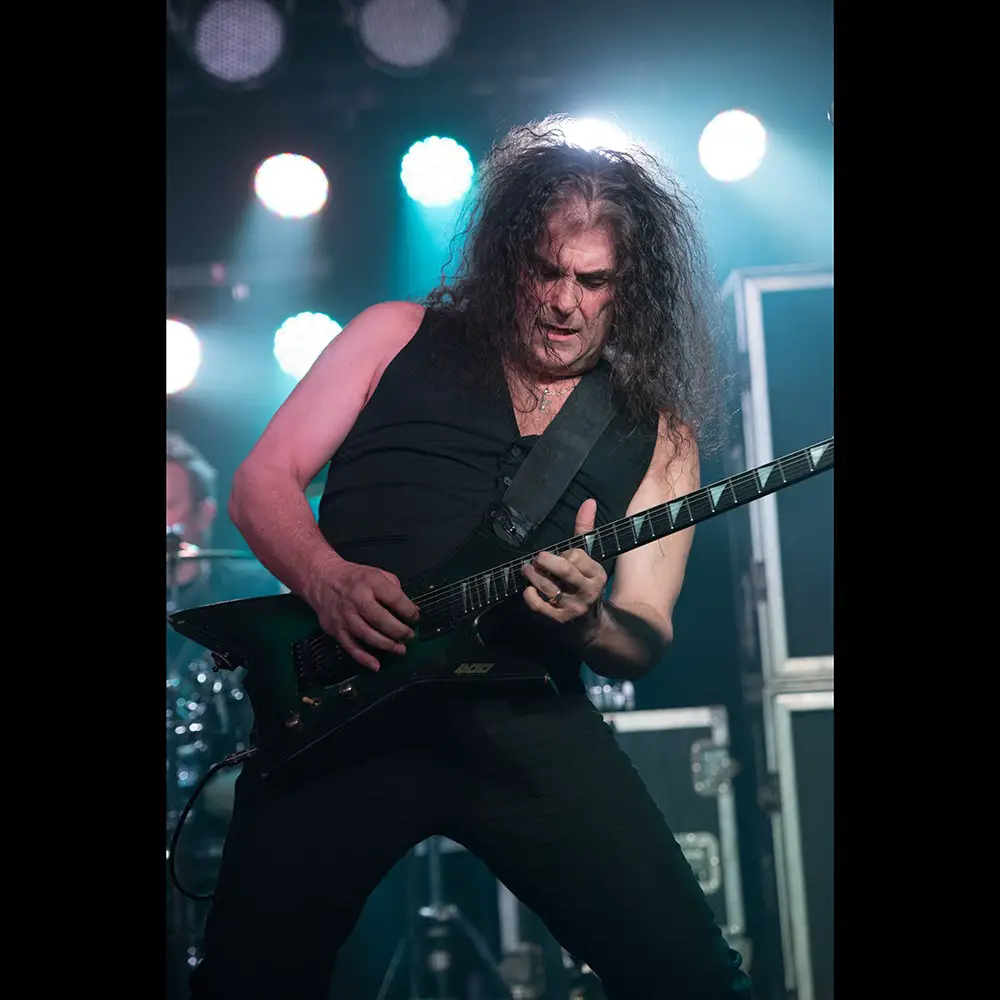
Andrew:
The 1990s was a volatile time for 70s and 80s rockers. This said, in your opinion, did Grunge have as much of an effect as it’s perceived to have had on Heavy Metal? Even if it did sort of “kill metal” for a time — were you a grunge fan? What are your thoughts on countless mainstream acts such as KISS, Mötley Crüe, and more “going Grunge” in the 90s?
Greg:
Grunge totally killed our genre of music. Record companies, radio, and video stations totally turned their back on us 80s rockers, which made it near impossible to get any notice. It was pretty much, “Out with the old, in with the new.” I hated when some of those bands that you mentioned, and a lot of others, tried to change their style to adapt to the new Grunge era. They were not being true to themselves, and were just trying to follow the trend, and fit in. It was very tough for a lot of bands to survive — most did not, and called it a day. I’ve noticed a big resurgence in the last decade for our style of music. A lot of young people are really digging it because it really was all about having a good time and enjoying life. It seemed Grunge was all about how shitty everything was in the world, and eventually, everyone started getting tired of all that negative energy and wanted to get back to the fun times of the 80s, which is OK with me!
Andrew:
Much is made of the 1980s golden age of glam metal. Looking back, was it really as crazy as it seemed? What was your experience like?
Greg:
The 80s were the greatest years of my life. It was a really crazy time in a good way and so much fun. I’m so glad that I got to experience it, and be a part of it. No cell phones, computers, or other distractions, it was all about the music. People really supported live music, and also, bought lots of records. It really seemed like it was a happier time with a lot more smiles on people’s faces.
Andrew:
Easy one’s now. What are a few of your favorite albums, and why?
Greg:
All of Led Zeppelin’s catalog especially for being so diverse. They were not afraid at all to take chances with the different styles they would venture into. They had Blues, Country, Folk, Heavy Metal, and Reggae, as well as others. Not too many bands can pull that off. I’m also a big fan of the Michael Schenker years in UFO, especially the live record, Strangers In The Night, which I think is a masterpiece. Naming just “a few” is tough because I could go on, and on with this. [Laughs].
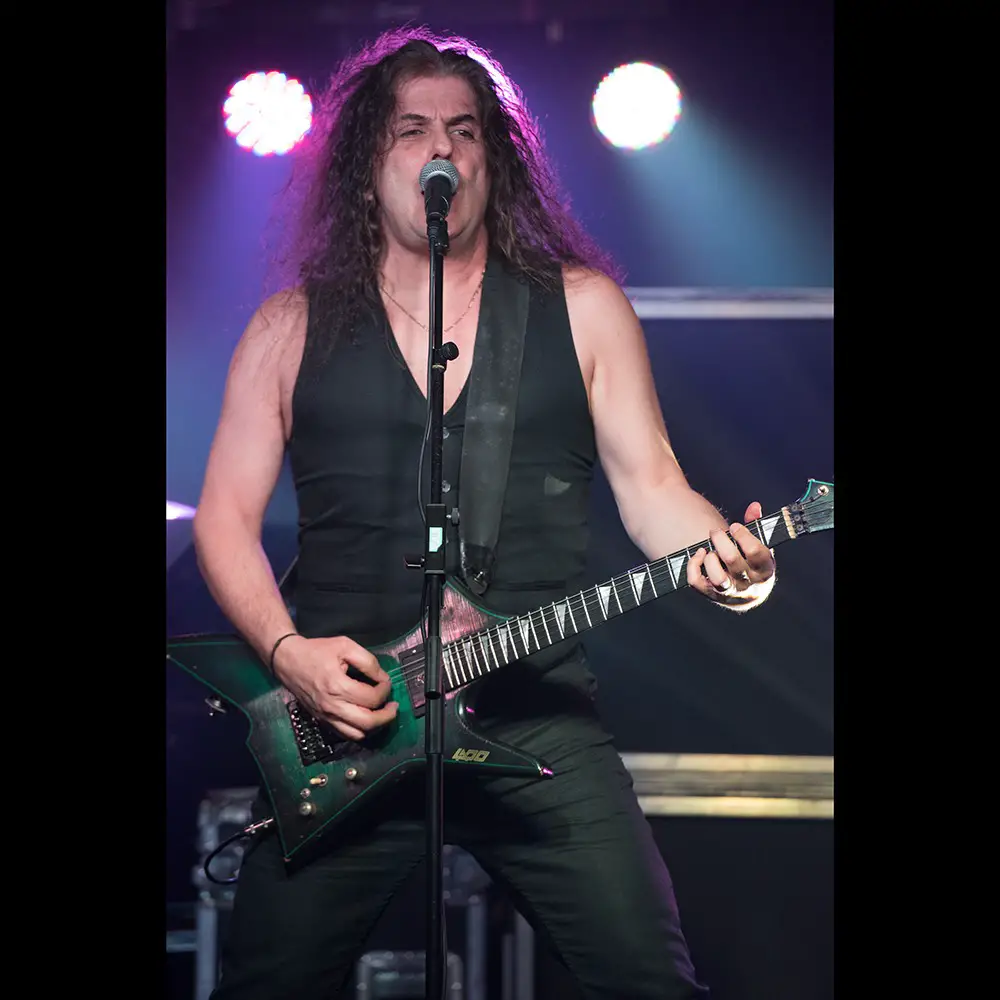
Andrew:
What other passions do you have? How do those passions inform your music, if at all?
Greg:
I love playing hockey, and still do whenever I can, although it’s been a lot tougher because of COVID. Before COVID, I played every week, which was fantastic, and I also watch a lot of hockey and football. I find things like this help my music because I think it’s good to step back from it from time to time, so it does not become stale, and predictable. I find playing, and watching sports can really get your juices flowing. After I get off the ice, although I’m exhausted, I find that all that adrenaline I used really clears the cobwebs in my head. It really helps with getting a fresh perspective on creating new music, and also helps get me out of some writing ruts that seem to happen when I dwell on things too long.
Andrew:
What sort of equipment do you use in the studio, and the live setting?
Greg:
I generally use my Lado Guitars of which I was endorsed by back in the day. Really great handmade Canadian guitars. As for amps, my main two are a 1980s Mesa “SOB,” and a 90s “5150.” I use them in the studio, and live, mostly. I also have a Marshall that I use once in a while in the studio for some different textures. I’ve never been a big gear head. I find what I like, and generally, stick with it.
Andrew:
Do you collect vinyl? CDs? Cassettes? Or are you all digital now? If you do collect physical media, why is that important to you? Why do you feel keeping physical media alive is important in this day and age?
Greg:
I still buy CDs of all my favorite bands. I like digital for the convenience of checking out new bands, and music, but still enjoy the experience of hearing a record from start to finish in sequence the way the artist intended. A lot of the digital formats do not sound as good as a CD or vinyl, especially MP3s. I hate the sound of MP3s! Keeping physical media alive is important in that it generates income for your favorite artists, which helps keeps them afloat, and thus being able to continue to bring you new exciting music.
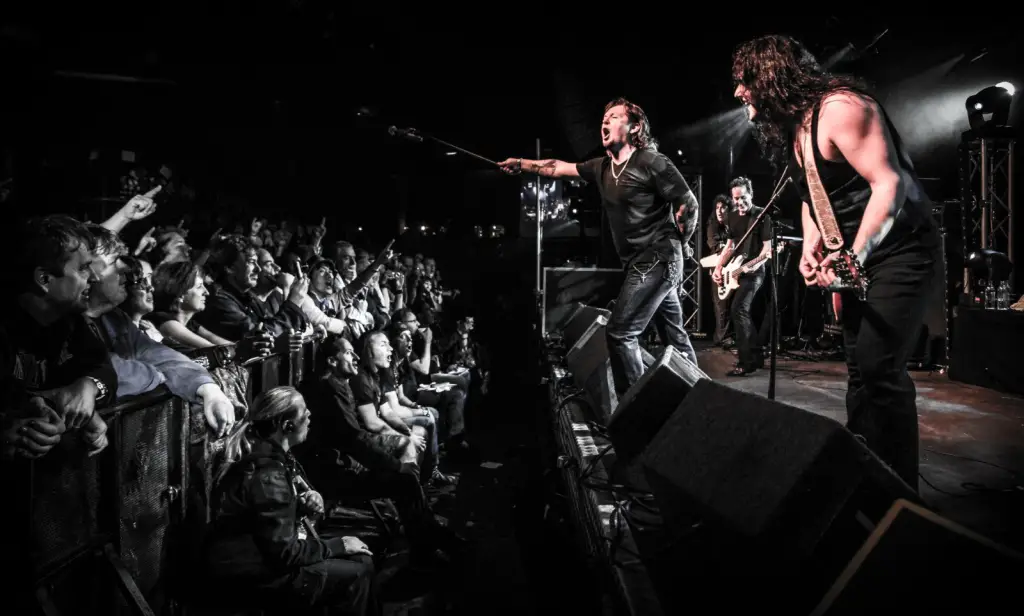
Andrew:
In 2001, Brighton Rock regrouped. The band put out a live album in 2002, and the single, “Creatures Of The Night,” in 2013. Why has the band shied away from releasing a full-length studio record to date?
Greg:
In 2012/13 we actually tried doing a new record, but after a while, it became quite apparent that our schedules were just not coinciding anymore like the old days when we were a full-time band. We were Brighton Rock 24 hrs a day, 7 days a week. Everyone was leading different lives now, and just getting us all in the same room was a major task. We did not want to half-ass it and put out something that was not up to par with our previous work. We did manage to release one new song back in 2019 called “End Of Time” which you can hear on YouTube. It was the last song we ever recorded together.
Andrew:
Last one. Brighton Rock sadly lost original vocalist, Gerry McGhee, in 2020. Will Brighton Rock carry on? If so, what call you tell us about what’s next?
Greg:
We decided not to carry on without Gerry. It just would not feel right calling it Brighton Rock without Gerry there with us. He’s our Mick Jagger, Steven Tyler, and Robert Plant. You can’t replace those guys. Thank God I have a creative outlet with my new band Storm Force. I can’t wait for everyone to hear the new music we’ve been working on for our second record. If you liked the first record, I think you will absolutely love our second one once it’s finished. For those of you that are unaware of Storm Force, you can check us out at www.stormforce.ca, and via all digital formats. Keep On Rockin’ Everyone!!
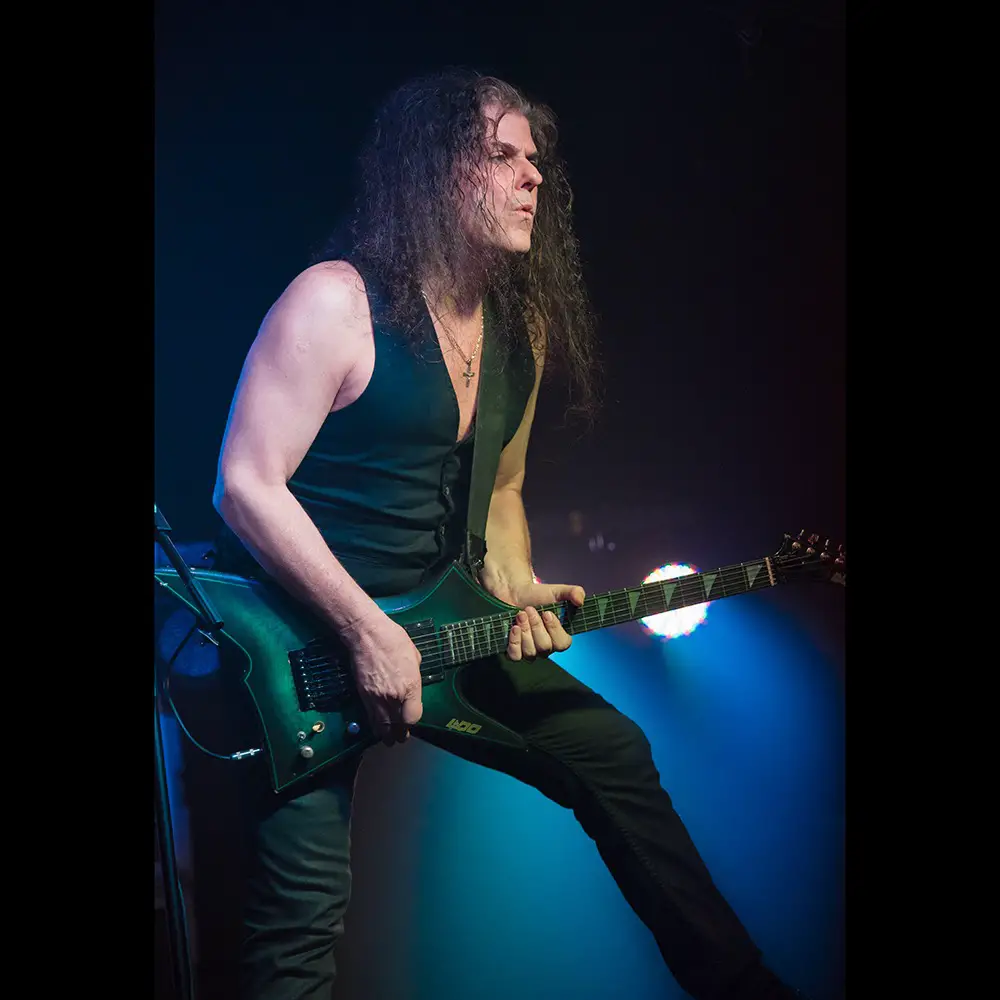
Interested in learning more about the music of Storm Force & Brighton Rock? Check out the link below:
Be sure to check out the full catalog of VWMusic Interviews, by Andrew Daly, here: www.vwmusicrocks.com/interviews
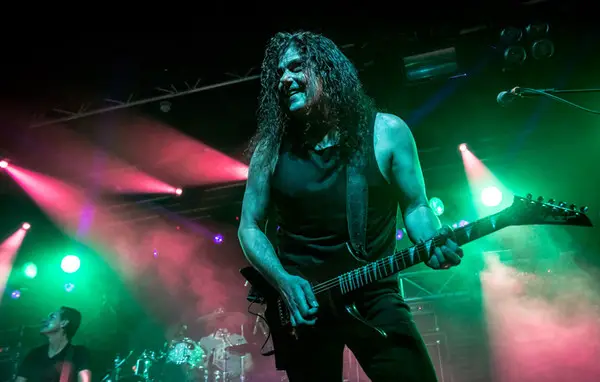




Leave a Reply